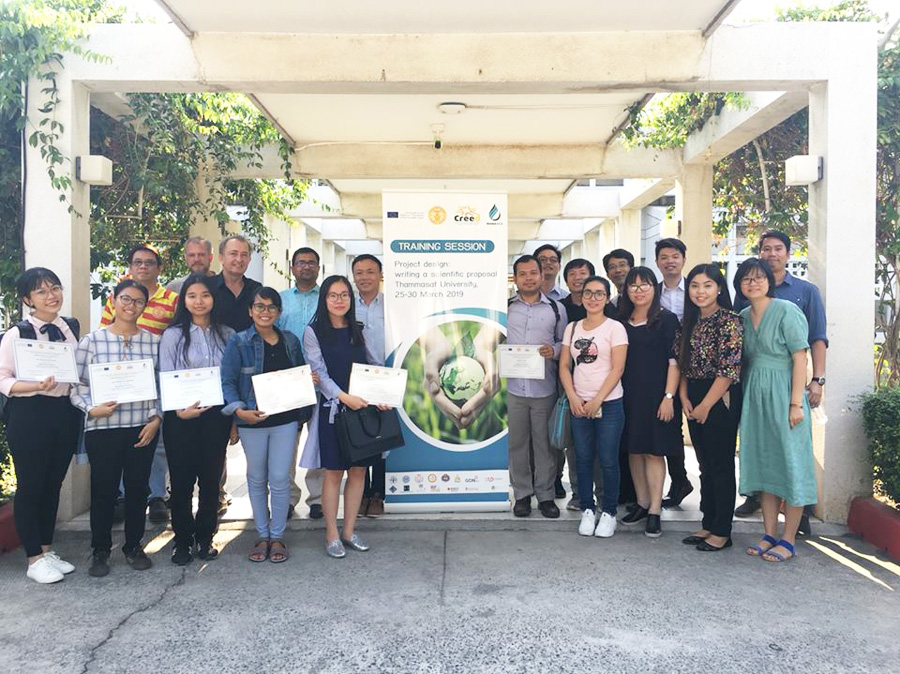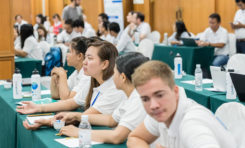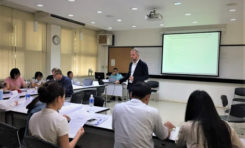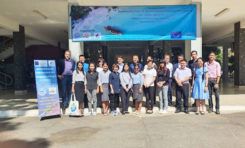Context
Improvement to the quality of teaching and research in Water and Natural Resources Management (WNRM) cannot be ensured without a) a high commitment of HEIs in the partner countries, b) a high quality of trainers selected from the program countries, c) the ability to provide support (financial and supervision) of young researches, and d) a balance/good fit between the academic skills taught and the skills needed by the wider economic and social environment.
This is the reason why the WANASEA (Water and Natural resources in South-East Asia – www.wanasea.eu) project includes, as part of its activities, 5 training sessions in its 3 years of implementation. The second one focuses on the theme: Project design: writing a scientific proposal. It is co-organized by the Center for Research and Expertise on Education and Development (CREED, France) and Thammasat University (Bangkok, Thailand).
Objective
The main objective of this second training session is to improve the quality of project proposals formulated by WANASEA’s Higher Education Institutions (HEIs) in the field of WNRM. More specifically, we will focus on the two complementary sides of the project design: its scientific side and its administrative side. Articulation of ideas and description of essential steps of a scientific project will be taught, as well as concrete and practical tools to identify and answer to a call for proposal.
Target groups
Both academic and administrative staff, who are or plan to be involved in scientific activities related to WNRW, are targeted for training. A clear holistic approach is taken since WNRM issues are clearly connected to their societal environment. In addition, an inclusive approach that combines learning about both the scientific and professional aspects of research and teaching activities makes WANASEA’s training sessions unique. Moreover, the training sessions are designed to address HEI’s needs and promote collaboration and institutional commitments among its staff.
Criteria of selection
Trainees should be young professionals (under 40), who can communicate well in the English language and who demonstrate a strong interest for developing research and teaching innovation. Their profiles should be complementary enough so that as a whole, they will constitute a team of researchers and staff who are able to boost research activities and quality of teaching. We encourage WANASEA’s partners to carefully select the trainees in order to meet the above mentioned objectives.
Topic: Project design: writing a scientific proposal
This second training session aims to develop the writing skills of Wanasea’s participants and to identify the conditions for an HEI to set up some administrative support for researchers to be able to implement their project. In this session, we will focus on a major step in a research project: its formulation and design. The subject will be addressed through a very practical and concrete approach, based on the use of examples of calls for proposal, accessible by trainees.
The following questions will be addressed:
- How to identify the right call for proposal for your project;
- How to compare funding program; how to choose the more suitable one for your objectives;
- How to make sure that your project is relevant and consistent with the call; how to read a call and understand the prerequisites;
- The different stages of the project design;
- How to organize your work in order to succeed;
- How an institution can support its researchers.
The session will teach trainees to write a research proposal based on their scientific question. They will learn how to compel to the rules of funding agencies by designing a well-structured proposal, consistent with the scientific basis of their project. Concrete and practical tools will be used in order to make sure that trainees will be able to use what they’ve been taught in their professional activities. The course material is well suited for anyone interested in moving forward from their initial scientific question to the implementation of their project.
Methodology
- Pre-course: pre-assessment will be sent to participants to determine their existing knowledge, skills and interests; articles will be sent, that must be read in preparation.
- The training session will last 4 to 5 days and is designed to train approximately 20 people.
- The learning process is founded upon concrete and tangible activities related to trainees’ concerns. Methods, techniques and exercises will be based on ideas, case studies, programs and/or projects developed by the trainees themselves, resulting in clear improvement of the latter. For this reason, substantial (but reasonable) preparatory work will be asked to the trainees, 2 to 3 weeks before the training.
- For the training session, 4 or 5 trainers will be mobilized into dynamic working groups. We expect a high level commitment of the trainers and trainees attending seminars and transparency of the selection process.
Calendar and milestones
- From 4th to 24th February: call for applications open
- 25th February: Wanasea’s members send to TU/CREED up to 5 applications
- 1st March: selection of the trainees and beginning of the pre-class activities
- 19th March: Introductory webinar
- 25-30 March: Training session in TU, Bangkok
Planning (subject to modifications until then)
Mon. 25 March (Morn.)
- Introduction of the topic “Project design: how to write a scientific proposal”
- The different kind of funding agencies and opportunities for SEA researchers and institutions
- Feedback from trainees on their experience in project design
Mon. 25 March (Aft.)
- Reading a call for proposal: the structuration of a project
- Presentation by trainees of their research questions (prepared before the training session – potentially resulting from Wanasea’s first training session)
- Formation of 4 or 5 work groups
Tue. 26 March (Morn.)
- Practical tools and recommendations
- Presentation of the methodology to go from the research question to the formulation of objectives and expected results
- Work groups: formulation of the project objectives and expected results
Tue. 26 March (Aft.)
- Different tools to design a project
- Presentations by IFS staff (tbc)
- Project design from the point of view of funding agencies; the evaluation process
Wed. 27 March (Morn.)
- Presentation of the methodology to work on the activities
- Work groups: formulation of activities
Wed. 27 March (Aft.)
- Field Trip
Thu. 28 March (Morn.)
- Definition of hypothesis and risks
- Indicators
- Monitoring and evaluation
Thu. 28 March (Aft.)
- Presentation JEAI program (IRD) 15h
- Presentation of the methodology to work on the definition of indicators and hypothesis
- Work groups: Formulation of indicators and hypothesis; preparation of final presentation
Fri. 29 March (Morn.)
- Presentation by Euraxess staff (tbc)
- Other concrete opportunities (tbc)
- Work groups: preparation of final presentation)
Fri. 29 March (Aft.)
- Presentation (30’), by each group, of their research project: Objectives, expected results, activities, indicators, hypothesis.
- Discussion: ideas for going further (from the proposal to the implementation…)
- Closing ceremony






